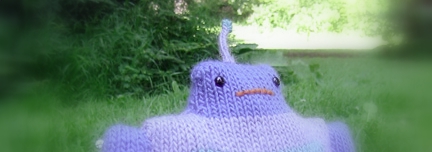It's hard to tell a woman from a tall girl, but with men and boys it's easy. Men are the ones dragging the grizzly carcasses behind their tanks. A moose, buffalo, or kodiak (the animal, not the boat--inflation is a faux pa) will also suffice. The species isn't important; it's a simple question of weight ratios. A seventy-pound boy cannot pull an eight-hundred-pound bear behind his bike–a duck maybe, but nothing suitably ferocious. And you'll never see a boy driving a tank; tank driving requires a special license.
That unsoldierly grunt in California who drove a stolen tank over all those parked cars had a license. That's what made it ok. Just like it was ok when the LAPD put a hollow point through the open hatch, into his head, after he high-centered on a highway median. The prerogative is in the fine print.
You don't need a special tank driver license to be a man, though; it's more of a formality. I tried to buy one once, but I didn’t know where they were sold. I went to Home Depot, but they wouldn't let me through the door. There is a callous quota, and I have piano player fingers. Good for playing the piano, but I was kicked out of band. Nevertheless, musicians are surprisingly often men, but only insofar as their affected moodiness helps them get laid.
Men are also recognizable by their masks made from the skulls of wolves, Sabertooth tigers, and other appropriately toothy predators. Stuffed, teeth bared, beady eyes glazed thick, posed threateningly–not icky at all. A necklace of human scalps is also a pretty good sign–too good of a sign, actually, but still better than a boy’s mask, which is usually given away by its self-conscious construction from plastic, felt, and excessive sequins.
Do not confuse sports mascots with men. They seem to be giant carcasses with oversized heads, paraded around on the backs of their captors. But if you look closer it's just foam; the grin is permanent and not that fierce at all; the eyes peeking out from the mouth could belong to anyone: a woman, a tall boy, even a well-trained ape. Never trust mascots. It's not a trophy unless the owner is there to tell you so, just so. A Just So Story for Adults, hardly any man's burden.
